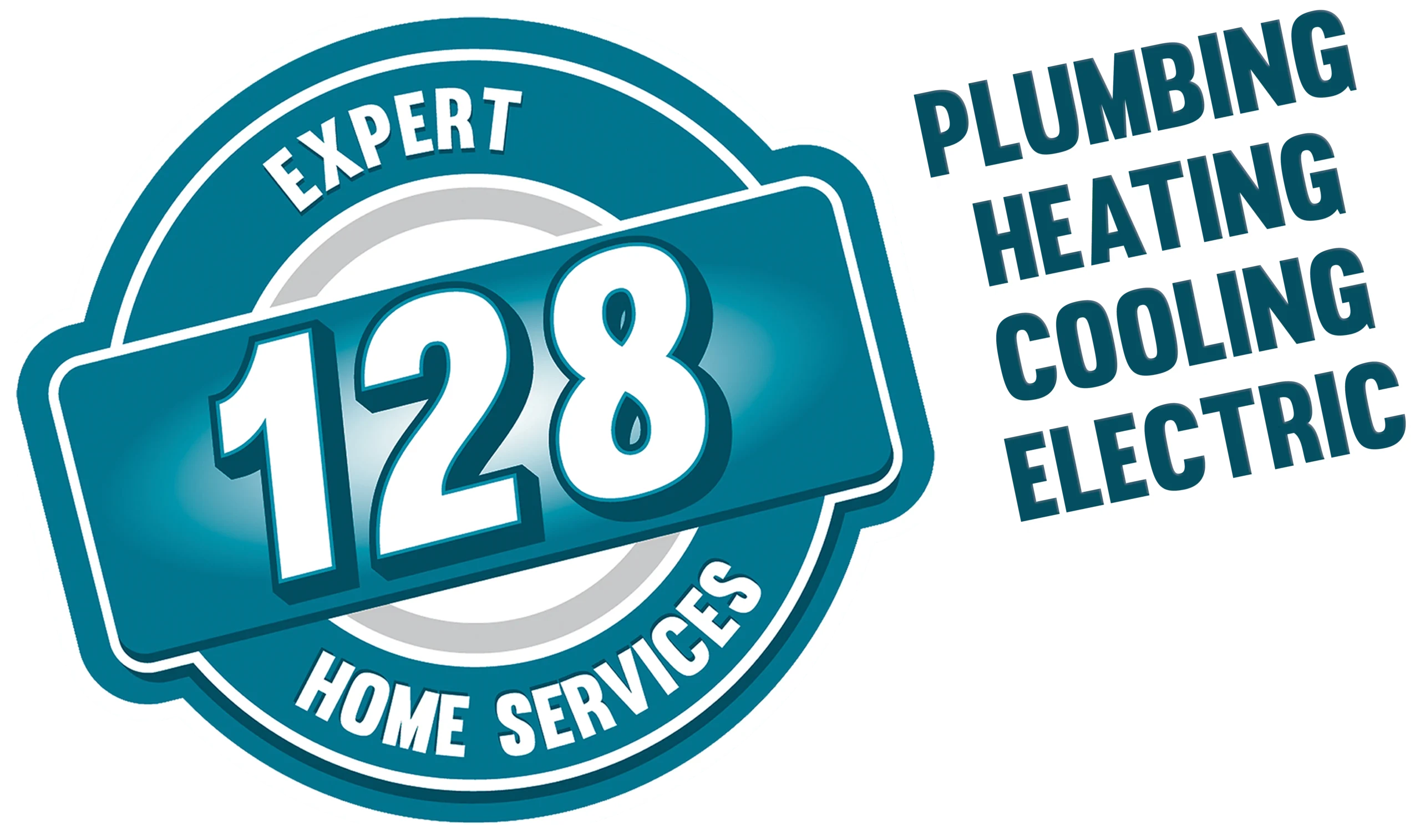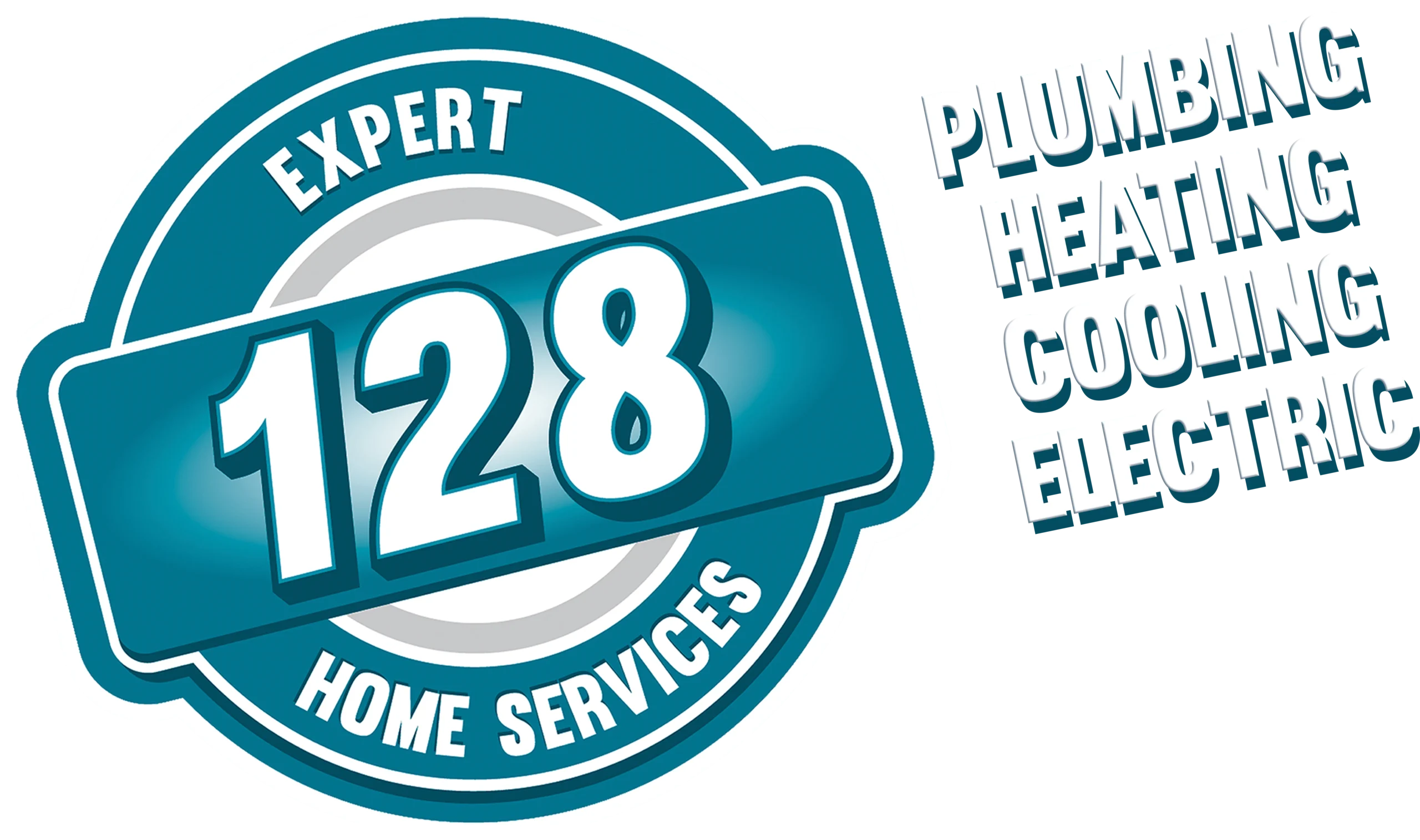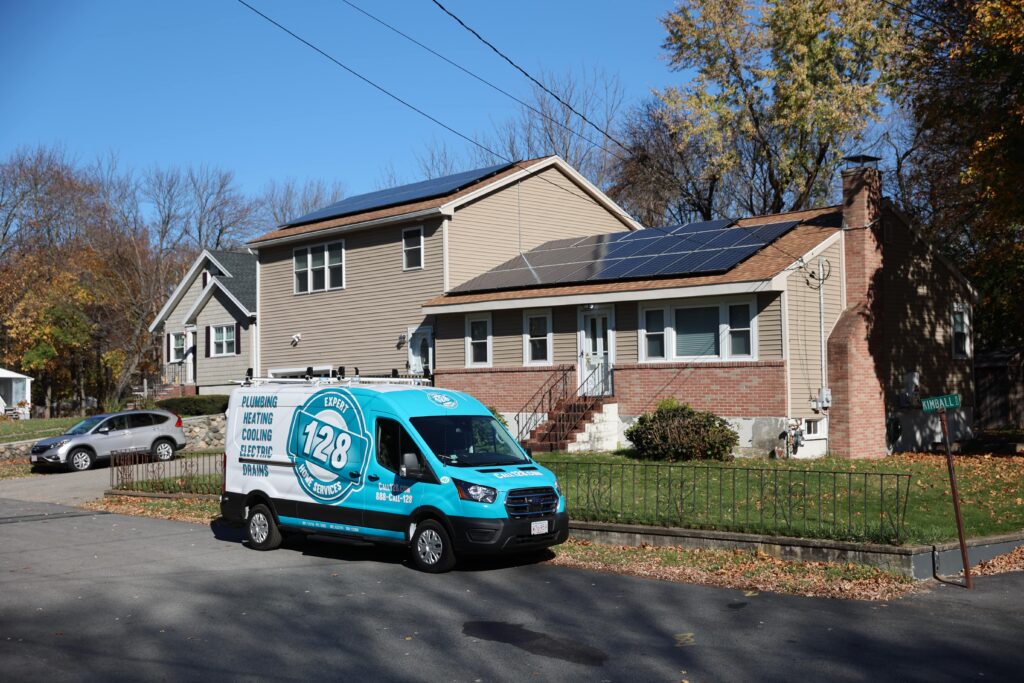
Are you ready to electrify your home and make a positive impact on the environment? Home electrification is an essential step towards reducing carbon emissions, improving indoor air quality, and achieving energy independence. In this comprehensive guide, we’ll explore the electrification process, its benefits, and the steps you need to take to transform your home into an eco-friendly space that not only has benefits for the planet but may also means financial benefits, too. .
The Importance of Home Electrification
At 128 Plumbing, Heating, Cooling & Electric, we understand that electrifying your home is a significant decision with substantial implications, especially in our ongoing battle against climate change. Electrification is a valuable strategy to shrink our carbon footprint. Switching to electric appliances not only aids the environment, but also enhances your family’s health and safety while building your energy independence.
Climate Change Impact
Electrifying your home can significantly reduce your carbon emissions. For example, by replacing a gas furnace and gas water heater with electric alternatives, you can eliminate up to 11 Tons of CO2 per year.
Moreover, an all-electric home can be powered by renewable energy sources, making it even more eco-friendly. Methane, a greenhouse gas emitted during natural gas extraction and distribution, is a major contributor to global warming and air pollution. Switching to electric appliances assists in mitigating the detrimental effects of methane emissions, thus positively impacting the environment.
Health Benefits
Gas appliances can pose health risks, releasing harmful emissions like carbon monoxide and nitrogen dioxide. In contrast, electric appliances offer a safer and healthier option for your home. Furthermore, induction cooktops, for instance, are not only incredibly efficient, but also help conserve energy and reduce the risk of fire and air pollution.
Energy Independence
Electrification empowers homeowners to rely on renewable energy sources and reduce their dependence on fossil fuels. Achieving energy independence has numerous advantages, including increased energy security, decreased dependence on foreign energy suppliers, and the opportunity for economic growth.
Replacing traditional appliances with their electric counterparts and installing solar power along with battery storage systems can lead you towards energy independence. With the right planning and dedication, you can transform your home into a self-sufficient, eco-friendly space.
Steps to Electrify Your Home
Electrifying your home involves a series of steps, including assessing your energy needs, upgrading your electrical panel, and replacing gas appliances with electric alternatives.
Approaching this journey with a well-thought strategy is key to a successful and seamless transition.
Energy Assessment
An energy assessment, or home energy audit, is an invaluable tool for evaluating your home’s energy use, comfort, and safety. It helps identify areas where you can implement energy efficiency measures and reduce energy consumption. By prioritizing electrification projects based on the assessment results, you can optimize your investments and make the most significant impact on your home’s energy efficiency.
For a successful energy assessment, you should hire a qualified professional like 128, integrate energy-efficient products, and plan to future-proof your home. By doing this, you can create a comprehensive plan that will guide you through the electrification process.
Electrical Panel Upgrade
Upgrading your electrical panel is crucial to ensure that your home can handle the increased electrical load from new appliances. A minimum of 100 amps is required for a fully electrified home, but it’s worth considering upgrading to a 200A panel if it’s not much more expensive.
Upgrading your electrical panel offers several benefits.
- Ensures your home is safe
- Keeps you up to date with the latest technology
- Gives you peace of mind
- Helps you avoid potential problems and costly repairs down the line
Appliance Replacement
Replacing gas appliances with electric alternatives, such as electric heating, is a key step in the electrification process. An electric dryer, like an electric clothes dryer, and heat pump water heaters, for instance, can significantly reduce energy consumption and lower utility bills compared to traditional gas heating systems.
When selecting electric appliances, consider the following factors:
- Size
- Energy efficiency rating
- Cost
- Features and functions that are important to you
Selecting the right appliances amplifies the benefits of home electrification and aids in reducing your carbon footprint.
To ensure a successful electrification journey, find qualified contractors, future-proof your home, and take energy efficiency measures. Additionally, explore available incentives and financing options to make the process even smoother. Contact 128 today if you need help navigating through this process or have any incentive or rebate questions you need answers to.
Choosing the Right Electric Appliances
 Selecting the right electric appliances is crucial for maximizing the benefits of home electrification. Efficient appliances, such as heat pumps, induction cooktops, and electric dryers, can help reduce energy consumption, lower utility bills, and contribute to a cleaner environment.
Selecting the right electric appliances is crucial for maximizing the benefits of home electrification. Efficient appliances, such as heat pumps, induction cooktops, and electric dryers, can help reduce energy consumption, lower utility bills, and contribute to a cleaner environment.
Heat Pumps for Space Heating and Cooling
Heat pumps, including electric heat pumps, are an excellent choice for energy-efficient heating and cooling solutions. They provide up to three times more heat than electric resistance heating while consuming the same amount of electricity.
Powering a heat pump with renewable energy can help you:
- Prevent 4-8 tons of carbon emissions per year, an amount typically produced by a gas furnace
- Achieve cost savings
- Contribute to a greener, more sustainable future.
Induction Cooktops and Stoves
Induction cooktops offer the following benefits:
- Improved efficiency
- Safety
- Precision compared to traditional gas stoves
- Quick heating up and rapid response to temperature changes, making them a great choice for precise cooking.
Induction cooktops have numerous advantages, including:
- They are safer than other types of cooktops.
- They only heat the pan, rather than releasing indoor air pollution from burning fossil fuels in the kitchen.
- They are more energy-efficient, resulting in lower electricity bills.
- They provide precise temperature control for cooking.
- They heat up quickly and cool down rapidly.
- They are easy to clean.
With these advantages, induction cooktops are an excellent investment for a cleaner, more energy-efficient kitchen.
Electric Dryers and Heat Pump Water Heaters
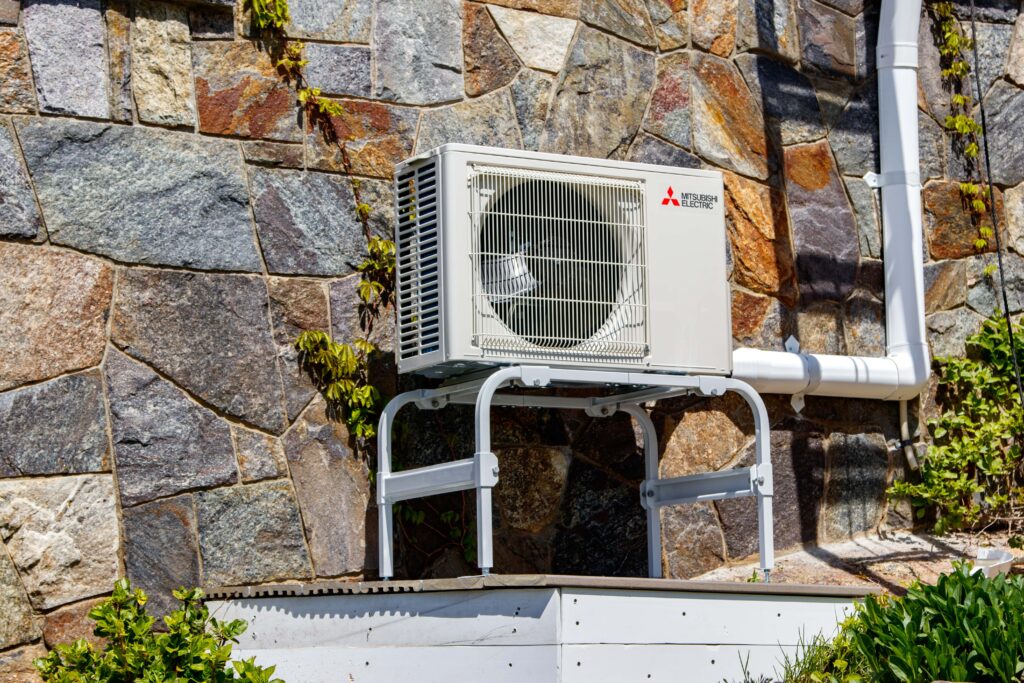
Electric dryers and heat pump water heaters are energy-efficient appliances that can help you save on utility bills. A heat pump water heater, for instance, can help reduce 1-3 tons of carbon emissions per year and significantly lower energy bills.
Investing in energy-efficient appliances contributes to a cleaner environment and also yields long-term cost savings. Embracing electric appliances is a smart and eco-friendly choice for your home.
Solar Power and Battery Storage
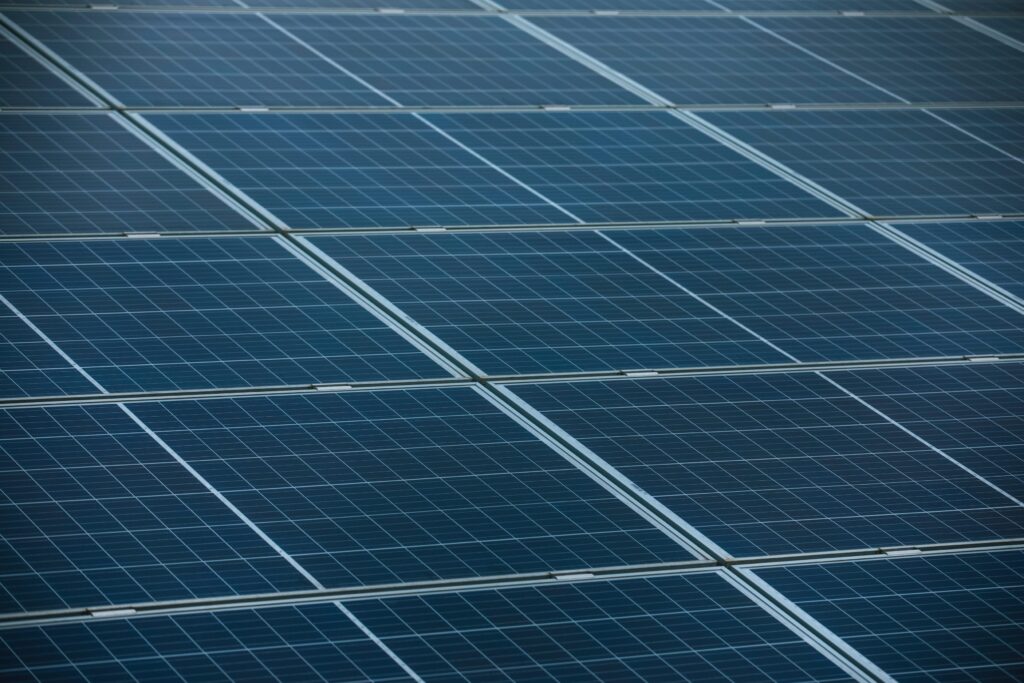
Installing solar panels and battery storage can further enhance the benefits of home electrification by providing clean, renewable energy.
Generating your own electricity through solar panels can diminish your dependence on the grid and decrease your energy bills.
Solar Panel Installation
Solar panels can generate electricity for an all-electric home, reducing reliance on the grid and lowering energy bills. The exciting process to install solar panels involves selecting the right type of solar panel, determining the best location for the panels, and securely connecting the panels to the electrical system.
Installing solar panels offers several benefits.
- Minimizes your carbon footprint
- Provides you control over your energy consumption
- Embraces the power of the sun
- Unlocks the potential of clean, renewable energy.
Battery Storage Options
Battery storage systems can store excess solar energy for use during peak times or power outages. With various battery storage options available, you can select the one that best suits your needs and budget.
Investing in a battery storage system offers the following benefits:
- Saving on energy costs
- Peace of mind during power outages
- Harnessing the power of renewable energy
- Enjoying the benefits of an eco-friendly lifestyle.
Excess Electricity and Net Metering
Net metering allows homeowners to:
- Sell excess solar-generated electricity back to the grid
- Offset energy costs
- Receive credit for the excess electricity generated and fed back into the grid
- Offset electricity consumed from the grid when solar panels aren’t producing enough power
By participating in net metering, homeowners can benefit from these advantages.
Net metering is an excellent way to maximize the benefits of solar energy and make the most of your renewable energy system. Taking advantage of net metering can cut down your energy costs further and contribute towards a cleaner, more sustainable future.
Financing and Incentives for Home Electrification
Various incentives and financing options are available to help homeowners afford the costs of home electrification. Exploring these options can help make electrification more attainable and feasible for your household. Incentives and financing options can help reduce the upfront costs of home electrification, making it more affordable.
Utility Rebates
Utility rebates can help you save money on individual appliances and benefit from lower operating costs for more efficient appliances. Researching available rebates and understanding the requirements for obtaining them can help you maximize your energy efficiency and reduce your energy costs.
Financing Options
Financing options, such as loans and leases, can make home electrification more affordable. Loans provide the opportunity to own the equipment outright, while leases offer the flexibility to rent the equipment for a set period of time. Exploring a variety of financing options enables you to find the best solution tailored to your needs and budget. At 128, if you live in qualified towns you can get 0% financing over 84 months for your high efficiency heating, cooling, and ductless installations.
Tips for a Smooth Electrification Journey
To ensure a successful home electrification journey, it’s important to follow best practices and keep a few key tips in mind. Hiring qualified contractors, future-proofing your home, and implementing energy efficiency measures can all contribute to a smoother electrification process.
Finding Qualified Contractors
Working with experienced contractors can help ensure proper installation and maximize the benefits of electrification. When choosing a contractor, be sure to:
- Inquire about their experience in home electrification projects
- Ask about their certifications
- Request references from past clients to ensure you’re making the right choice.
Future-proofing Your Home
Future-proofing your home involves planning for additional electrical needs that may arise in the future, saving time and money in the long run. Here are some steps you can take to future-proof your home:
- Assess your current electrical needs to determine if any upgrades are necessary. Our expert electricians at 128 can help determine what electrical services you may need , simply request an appointment.
- Consider upgrading your electrical panel to accommodate future electrical demands.
- Replace outdated appliances with energy-efficient models that meet current standards.
Energy Efficiency Measures
Implementing energy efficiency measures, such as insulation and air sealing, can further reduce energy consumption and costs. By prioritizing these measures and investing in energy-efficient appliances and equipment, you can create a more sustainable and cost-effective home.
Making these investments can help you save money in the long run, as well as reduce your expenses.
Electrification for Renters
Renters can also participate in home electrification by using portable electric appliances, joining community solar programs, and utilizing EV charging solutions.
Renters who embrace electrification can also contribute to a cleaner, more sustainable future.
Portable Electric Appliances
Portable electric appliances, such as induction cooktops and space heaters, can help renters reduce their carbon footprint. These appliances offer a convenient and affordable way for renters to embrace the benefits of electrification without the need for permanent installations.
Community Solar Programs
Community solar programs allow renters to access solar energy without installing panels on their property. By joining a community solar program, renters can support renewable energy projects and receive credits on their electricity bills, reducing their overall energy costs.
EV Charging Solutions
Shared charging stations and other EV charging solutions can help renters with electric vehicles access clean transportation options. By utilizing these charging solutions, renters can reduce their carbon emissions and contribute to a greener, more sustainable future.
Why 128 Plumbing, Heating, Cooling, and Electric for your Electrification Needs?
Home electrification is an essential step towards a cleaner, more sustainable future. By following the steps outlined in this guide, you can transform your home into an eco-friendly haven, reduce your carbon footprint, and improve the health and safety of your family. At 128, we take time and care in understanding your needs and goals before we start a project. Our seamless process offers a hassel-free experience with one goal in mind —your happiness. By choosing the experts at 128 for your home electrification needs, you’re choosing an immediate partner that will have your back for years to come. Call or text us today at 888-CALL-128.
Frequently Asked Questions
What is home electrification?
Home electrification is the process of replacing non-electric fuel sources in home appliances with electricity, providing improved air quality, cost savings and a reduction in greenhouse gases.
Should you electrify your home?
Electrifying your home can bring major safety upgrades and has the added benefit of being safer and healthier than natural-gas-burning appliances.
How do you electrify a house?
Making the switch to electricity can be done by replacing your furnace with a heat pump, buying an induction cooktop, and using an electric dryer or clothesline to dry clothes. Additionally, solar panels are a great way to generate clean energy for your home.
What are the main benefits of home electrification?
Home electrification brings essential benefits, including reducing carbon emissions, improving indoor air quality and increasing energy independence. These benefits are especially important in developing countries, where access to electricity is often limited.
